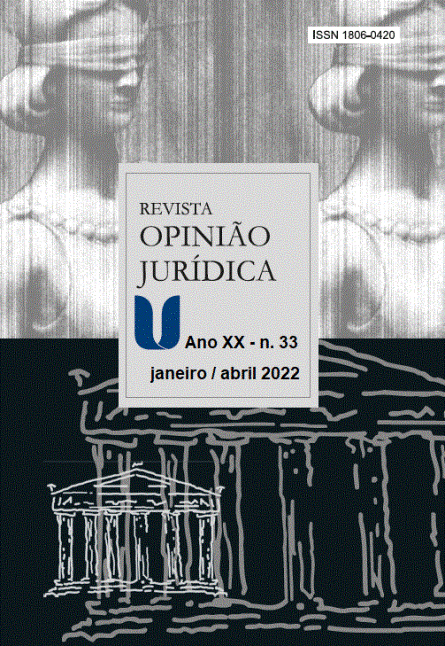MEANINGFUL ENGAGEMENT: SOUTH AFRICAN CONTRIBUTIONS TO STRUCTURAL LITIGATION IN BRAZIL
DOI:
https://doi.org/10.12662/2447-6641oj.v20i33.p165-201.2022Palavras-chave:
Meaningful Engagement, South Africa, Structural Litigation, Structural RemediesResumo
Objective:The purpose of this article is to analyze a structural remedy model developed by the Constitutional Court of South Africa, called Meaningful Engagement, which can minimize the impact of traditional objections to structural litigation, as it increases community participation and interinstitutional dialogue between the various actors responsible for the solution of the problem.Methodology: As a research methodology, in addition to the traditional bibliographic research around the doctrine developed on the subject, a more in-depth analysis of the two paradigmatic cases that served as the basis for the development of the South African institute, Olivia Road and Joe Slovo, was carried out.
Results: It is concluded that are intrinsic and extrinsic reasons for seeking inspiration in the Meaningful Engagement model. The South African model, by valuing institutional dialogue and public participation, mitigates the usual criticisms to structural litigation.
Contributions: From the results, it is observed that: a) in dialogic structural remedies, affected communities are treated with dignity and can influence the formulation of public policies that concern them.; b) public participation guarantees the structural injunctions transparency and, to the judges, greater technical capacity, since only with the inclusion of the social segments affected by the problem that is intended to be overcome will the judge be able to produce measures consistent with the real needs the concrete case; c) finally, public participation and institutional dialogue also collaborate to mitigate the criticisms usually made of structural processes.
Downloads
Publicado
Como Citar
Edição
Seção
Licença
TRANSFERÊNCIA DE DIREITOS AUTORAIS
A submissão de artigo à apreciação da Equipe Editorial da Revista Opinião Jurídica implica, por este mesmo ato, a cessão, por parte do(s) autor(ES), para o Centro Universitário Christus – UNICHRISTUS, da referida OBRA para fins de reprodução, divulgação, distribuição, impressão, publicação e disponibilização, em qualquer forma ou meio que exista ou venha a existir, nos termos do art. 49 e os seguintes da Lei 9.610/98.
Parágrafo Primeiro. A cessão, objeto deste Termo, é feita a título não exclusivo e gratuito, abrangendo a totalidade da OBRA.
Parágrafo Segundo. A UNICHRISTUS poderá disponibilizar, para fins didáticos, a OBRA no todo ou em partes, vedada a alteração de seu conteúdo textual, ressalvadas correções e formatações que se fizerem necessárias.
Parágrafo Terceiro. A cessão é válida em quaisquer países, em língua portuguesa ou tradução, a critério da UNICHRISTUS.
DAS RESPONSABILIDADES
Ao submeter(em) artigo de sua lavra, o autor (e co-autores, se houver) assume(m), por este ato, a responsabilidade exclusiva pela integralidade do conteúdo da obra de sua autoria. Dessa forma, quaisquer medidas judiciais ou extrajudiciais concernentes ao seu conteúdo serão de sua inteira responsabilidade.
Parágrafo único. Em caso de pluralidade de autores, considera-se solidária a responsabilidade, ressalvadas as provas em contrário.































